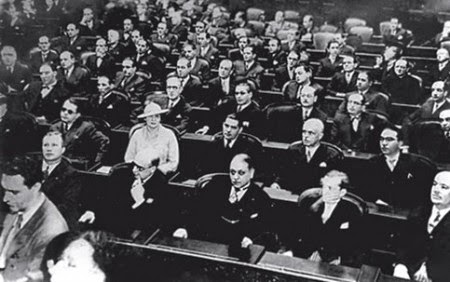It has been a
great success in social media a campaign called “small corruptions” promoted by
CGU, the institution responsible for assist the Brazilian President in issues
related to transparency, fight against corruption, among others subjects co-related.
The campaign reached 10 million accesses in Facebook, which is a really unusual
achievement to public institutions in Brazil.
This success may
be explained by the fact that the wave of protests against corruption in social
media has increased a lot in Brazil since last year. Nevertheless, the most
interesting thing about this campaign is the fact that CGU is encouraging
people to pay attention not to the politicians and big companies actions, but
to their own behavior.
 |
The change for a more ethical Brazil starts in each one of us. Small corruptions: say no.
|
 |
| Each post shows an example of unethical or illegal attitude |
According to
the site of CGU, the main goal of the campaign is to “aware citizens
about the importance of fighting against unethical attitudes – or even illegal
attitudes – that are culturally accepted and have its severity ignored or
undermined”. In this sense, it could be argued that the campaign aims a
long-term result, which is based on the expectation that better individuals lead
to a better society, and a better society gives rise to better governments (2).
However, it seems fair to say that this is not exactly the main point of the campaign. The point seems to be the deconstruction of the general idea that Brazilian people are corrupt (this idea is pretty common. Have a
look at this article, for example) and, by doing this, the campaign aims
to make citizens believe that the fight against corruption worth. Pereira (3), an auditor of
CGU explains that the campaign is a way to show that those who believe that
corruption is part of Brazilian nature are wrong. He affirms that this belief means
that Brazilian society has failed, and hence, that there would not be a way
out. The campaign, according to him, reminds people that unethical and illegal attitudes
practiced by individuals can be prevented individually. In other words, the
society has not failed and there is the possibility to the country reduces its
level of corruption.
Therefore, the
campaign aims to amplify the interest of society in monitoring the Governments
and, consequently, demand more transparency, accountability and ethics. By
focusing on invisible power, the campaign highlights the importance of constant
vigilance over our own attitudes and over public institutions.
______________________________________________________________
1. Invisible power is one of the forms of power and works by "shaping meaning and what is acceptable".
Gaventa, J (2006). Finding the spaces for change: a power analysis. IDS Bulletin Volume 37 number 6 November 2006.
2. This idea is related to the concept of social capital in the way discussed by Lipset (1959) and studied by Putnam (1993).
Putnam, Robert D. 1993. Making Democracy Work: Civic traditions in Modern Italy. Princeton: Princeton University Press.
Lipset, S. M. (1959). Some Social Requisites of Democracy. American Political Science Review 53, no. 1, pp. 69-105.
3. Claudenir Brito Pereira is Chief Auditor of the Internal Audit of the National Department of Transport Infrastructure (DNIT). Article in Portuguese available here




